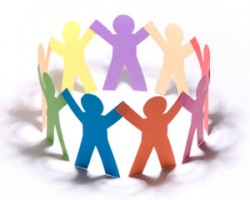10 Ways Living in a Recovery House Will Enhance Your Recovery
For most people, addiction entails a process where drug effects gradually take over their lives. Likewise, addiction recovery is also a process wherein addicts work to undo the damaging effects of chronic drug abuse.
While drug treatment programs go a long way towards helping addicts take back control of their lives from the effects of drugs, sooner or later those in treatment will have to re-enter everyday life on their own. At this point, things can start to fall apart fairly quickly when needed treatment supports are lacking.
According to the OLR Research Report, recovery house programs (also known as sober living homes) act as a bridge between the safety and structure of drug treatment programs and the chaotic, fast-paced world of real life. Someone who has concerns about whether or not they’re ready to re-enter the “real world” may want to consider the benefits afforded by recovery house programs.
Here are 10 ways living in a recovery house can enhance your recover progress.
1. Maintaining Employment
Recovery house programs require residents to maintain gainful employment for the length of their stay. Much like life in everyday society, learning to maintain employment and deal with all the pressures that come with it is essential to avoiding unexpected relapse episodes.
2. Taking on Financial Responsibilities
Residents in sober living programs must pay monthly rent as a condition of their stay. By the time a person leaves the program, taking on financial responsibilities and learning to manage one’s money will come second-nature.
3. 12 Step Support Group Attendance

Recovery houses allow for the attendance of support groups.
Regular attendance at 12 Step support group meetings gives recovering addicts an outlet for working through the challenges they face in recovery from day-to-day. Regular attendance at meetings also helps a person stay engaged in the recovery process.
4. Getting a Sponsor
Recovery programs require a person get a sponsor as a condition of their stay. Whether a person enters a recovery house program or not, getting a sponsor should be the first thing a person does upon completing drug treatment. Over time, sponsors can be an invaluable source of support and guidance throughout a person’s recovery process.
5. Community-Oriented Environment
Residents in recovery house programs become part of a community that shares one common goal: living a drug-free lifestyle.
6. Recovery-Focused
As recovery-focused environments, sober living homes combine the best of both worlds in terms of requiring residents to maintain employment and abide by house rules while making recovery a top priority on a day-in, day-out basis.
7. Maintaining Abstinence
Over the course of time spent in a sober living home, residents must maintain ongoing abstinence as alcohol and drugs are not allowed on the premises.
8. Support Network
Over time, fellow residents in a recovery house become your support network to reach out to when the urge to use is overwhelming.
9. Support and Guidance
Sober living programs offer the type of support and guidance needed to navigate the difficult day-to-day challenges people face in recovery.
10. Building a Drug-Free Lifestyle
Once a person is ready to leave a recovery house, he or she has “lived” a drug-free lifestyle and can carry these habits over into life in the real world.
 Questions to Ask Potential Sober Houses -
Although many sober houses have similar rules and costs, you'll want to contact each one to see where you'll be a better fit.
Questions to Ask Potential Sober Houses -
Although many sober houses have similar rules and costs, you'll want to contact each one to see where you'll be a better fit.  Sober House Rules -
Recovering from substance abuse is a difficult and often long journey. Many people enter inpatient facilities or rehabilitation facilities and find themselves cut off from the bad influences that overran their lives; however, many of these recovering addicts find themselves unable to reintegrate into the world when they return. Sober housing provides an environment where ...
Sober House Rules -
Recovering from substance abuse is a difficult and often long journey. Many people enter inpatient facilities or rehabilitation facilities and find themselves cut off from the bad influences that overran their lives; however, many of these recovering addicts find themselves unable to reintegrate into the world when they return. Sober housing provides an environment where ...  Ways to Remind Yourself to Stay Sober -
By thinking positively and staying active, you can prevent relapse and continue on your recovery journey.
Ways to Remind Yourself to Stay Sober -
By thinking positively and staying active, you can prevent relapse and continue on your recovery journey.  Is Sober Living Really the Next Step? -
Sober living helps those in recovery avoid relapse and gain support of like-minded peers that encourage a drug-free lifestyle.
Is Sober Living Really the Next Step? -
Sober living helps those in recovery avoid relapse and gain support of like-minded peers that encourage a drug-free lifestyle.  The Importance of Relationships While Living in Sober Housing -
Attending 12 step meetings regularly and being committed to the program has been shown to reduce relapse rates in sober houses.
The Importance of Relationships While Living in Sober Housing -
Attending 12 step meetings regularly and being committed to the program has been shown to reduce relapse rates in sober houses.